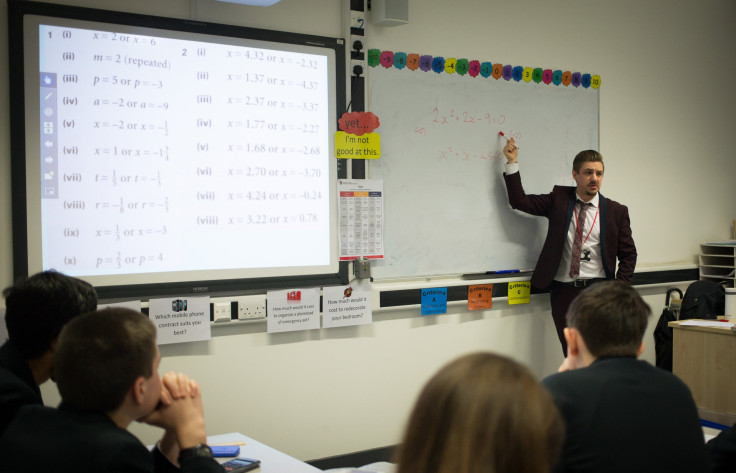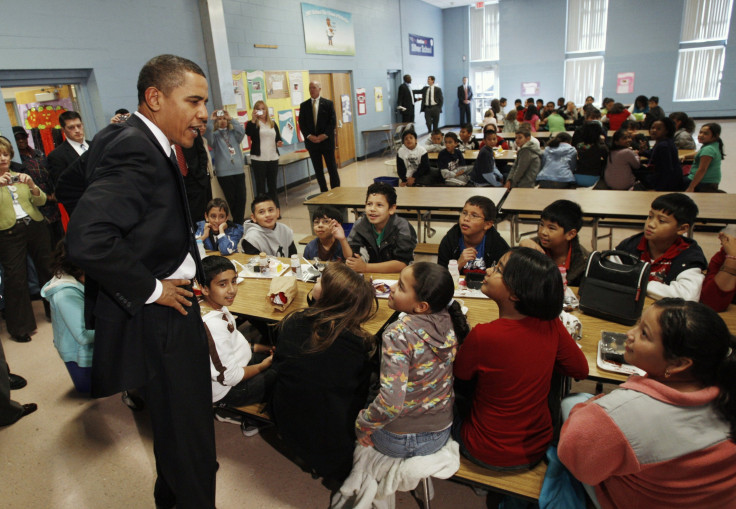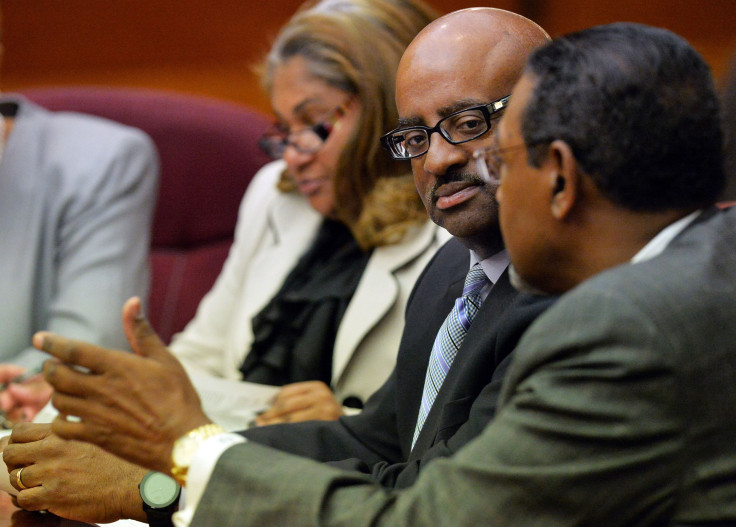No Child Left Behind Debate: Teachers In Low-Income Areas Hope For Less Testing, More Understanding

Shanna Mills can tell what kind of day her students are having by the way they walk into the room at 7:45 a.m. At Carlisle County Middle School in rural Bardwell, Kentucky, they come in late, hungry and wearing the same clothes for days on end. Then they tell her stories: The police were at their houses all night, a parent's car was stolen, or they woke up early to look after a sibling.
"There are so many things going on in their lives that school just isn't a priority after the bell rings at 3 o'clock," she said. "Sometimes we're just proud they're there that day."
But the tests -- the annual, year-end standardized exams that determine everything from promotions to teacher raises -- don't know what Mills knows. They can't tell whose father has cancer or how many cousins they share a bedroom with. And that's what she said worries her about the government's growing emphasis on high-stakes tests: They provide a one-day snapshot of a kid, not the whole picture, so it's not fair the results are used so widely.
She and other teachers, especially those who work in low-income areas, are concerned about the growing focus on high-stakes standardized tests for not only students but also themselves. As Congress starts to debate an overhaul of the No Child Left Behind education law, discussing how many tests kids should take and what the results should be used for, teachers say they're hoping lawmakers remember how many factors affecting academic performance are outside of their control.
"You actually have real students sitting there, not just numbers," said Mills, who teaches sixth- and eighth-grade social studies. "It just seems like students are tested all the time, and that doesn't leave a lot of time for teaching."
The Senate and House each took up rewritten versions of the Elementary and Secondary Education Act, the most recent iteration of the law known as No Child Left Behind, this week. Both bills would transfer power from the federal government to states and districts, though both include mandates for annual testing in grades 3 through 8 and once in high school. Education Secretary Arne Duncan has championed yearly testing as a way to measure progress, but leaders like Sen. Jon Tester, D-Mont., disagree. They say high-stakes standardized testing stresses out students as well as teachers, who in many states are evaluated based on kids' scores. Tester plans to introduce an amendment resulting in less-frequent exams.

Mills said even though she doesn't teach English or math, the two test subjects, everything in her classroom is tailored to the test. To make sure students are learning skills they will need for the exam, she said, she's eliminated creativity from her curriculum. Mills doesn't have time to have her kids make models of colonial towns, reenact Revolutionary War battles or research the Salem witch trials. She only gives multiple-choice tests because that's the format of the exam.
Students at Carlisle, where about 60 percent of children get free or reduced lunch, need more support than most. If the new No Child Left Behind mandated fewer tests, the district could spend more money on resources to help them, Mills said. Program reviews or district tests could give the teachers the data they need without overwhelming the students.
Chris Schneck, who taught three years of sixth-grade science at Coan and Camp Creek middle schools in Atlanta, would also like to see his students tested less often. Just getting them to sit still for exams was difficult. There'd be a fight at lunch on every exam day because the kids had too much energy. All students there got free meals last year.
Schneck said he couldn't just focus on curriculum because students were dealing with so many other issues. He used to keep granola bars in his desk for people who came in hungry and stay after school to wait with kids whose buses came late. Parents wouldn't come to conferences because they didn't have cars. One student left school early every day to babysit his little brother.
"They're dropped off at school with much, much baggage, and they walk into my classroom with that baggage 30 at a time," Schneck said. "That puts a lot of pressure on teachers to be mindful of everything else that's not education-related."
When students don't perform reliably but teachers still have to meet standards, they sometimes crack. In 2009, more than 150 Atlanta Public Schools teachers were found to have changed students' test answers so they would meet targets and keep their jobs. Eleven were convicted in April on racketeering charges. Earlier this year, an eighth person was charged in a similar cheating scheme in Philadelphia where teachers directed their students to change wrong responses.

These incidents are not acceptable, but on some level they're understandable, said Michelle Gunderson, a first-grade teacher at Nettlehorst Elementary School in Chicago. Standardized tests' purpose used to be to inform, but now they punish, she said, adding that the Atlanta teachers were jailed for a systematic wrong. As they revamp No Child Left Behind, lawmakers should think about the conditions that drove the teachers to cheat, she said.
"What would they do if their job was on the line? If your next mortgage payment or ability to take care of your children was on the line?" said Gunderson, who's been teaching for 29 years. "Even the nicest dog, when backed into a corner, will bite."
Teacher evaluations should be separate from test scores because educators can't control everything in their students' lives, she continued. Gunderson is in favor of tests given based on age span, where students take exams once in elementary, middle and high school.
Glenda Thurlkill, president of the Missouri State Teachers Association and a math interventionist for Springfield Public Schools, said that if Congress doesn't take action to reduce the emphasis on tests, there could be more situations like Atlanta and Philadelphia. Put simply, one test on one day shouldn't determine a student's progress -- or a teacher's effectiveness.
That's why she's hoping for more realistic testing expectations under the new No Child Left Behind. Congress has a chance to help teachers and students -- particularly the ones whose test scores are unpredictable because everything else in their world is.
"You never know what happened in their lives before they come to school the next day," Thurlkill said. "Our tests should be used to help our kids and also to help our teachers."
© Copyright IBTimes 2024. All rights reserved.






















